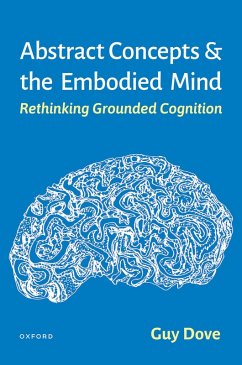Our thoughts depend on knowledge about objects, people, properties, and events. To think about where we left our keys, what we are going to make for dinner, when we last fed the dogs, and how we are going to survive our next visit with our family, we need to know something about locations, keys, cooking, dogs, survival, families, and so on. As researchers have sought to explain how our brains can store and access such general knowledge, a growing body of evidence suggests that many of our concepts are grounded in action, emotion, and perception systems. We appear to think about the world by means of the same mechanisms that we use to experience it. Yet, abstract concepts like 'democracy,' 'fermion,' 'piety,' 'truth,' and 'zero' represent a clear challenge to this idea. Given that they represent a uniquely human cognitive achievement, answering the question of how we acquire and use them is central to our ability to understand ourselves. In Abstract Concepts and the Embodied Mind, Guy Dove contends that abstract concepts are heterogeneous and pose three important challenges to embodied cognition. They force us to ask: How do we generalize beyond the specifics of our experience? How do we think about things that we do not experience directly? How do we adapt our thoughts to specific contexts and tasks? He further argues that a successful theory of grounding must embrace multimodal representations, hierarchical architecture, and linguistic scaffolding. Focusing on a topic that has generated a lot of recent interest, this book shows that abstract concepts are the product of an elastic mind.
Dieser Download kann aus rechtlichen Gründen nur mit Rechnungsadresse in A, B, BG, CY, CZ, D, DK, EW, E, FIN, F, GR, HR, H, IRL, I, LT, L, LR, M, NL, PL, P, R, S, SLO, SK ausgeliefert werden.


